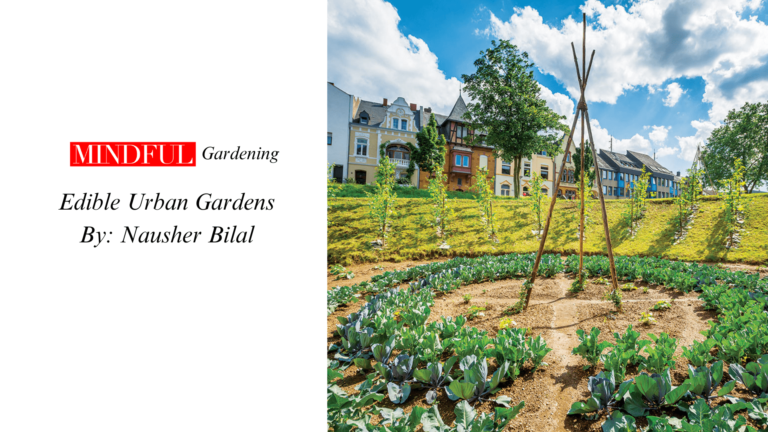Climate Change is an undeniable reality. Pakistan ranks among the top 10 most affected nations globally, facing devastating urban heatwaves, flash flooding, and accelerating glacial melts. Yet, the country is inadequately prepared for adaptation and mitigation, mainly due to a lack of infrastructure. Informed and educated citizens must recognize the necessity of collective action, rather than relying solely on governmental interventions. Civic responsibility begins at the grassroots level, encompassing sustainable consumption habits and actively self-educating on proper waste disposal methods for domestic and communal use.
Currently, approximately 40% of Pakistan’s population resides in urban areas. As inflation soars, sustainable living becomes increasingly challenging for city dwellers. Air pollution, scarce clean drinking water, and escalating food costs have plunged urban areas into simultaneous environmental and economic crises. Despite these grave concerns, urban parks and green spaces are dominated by manicured lawns and seasonal flower displays that consume excessive water but offer minimal environmental benefits. On the other hand, trees—particularly native species—remain scarce. Moreover, the reliance on exotic species like Conocarpus and Eucalyptus, alongside invasive plants, exacerbates poor air quality and contributes to public health issues including respiratory diseases.
A viable solution to these pressing concerns lies in the cultivation of urban edible gardens. While this concept may be unfamiliar in Pakistan, it has proven successful in many countries including the USA., often within low-income communities. By law, residential areas in Pakistan are designated green spaces, which often lie vacant or are transformed into grass-covered parks requiring costly maintenance and water resources. Reimagining these spaces as edible gardens offers a more sustainable and community-driven approach.
Edible gardens could thrive through collective community efforts. Residents, both young and old, could participate in the cultivation and stewardship of these gardens, fostering a stronger sense of community while sharing the fruits—literally—of their labor. With responsible management, such gardens would not only provide nutritious food but also offer an opportunity to compost the organic kitchen waste, while enriching soils and promoting sustainable urban farming. This model alleviates economic pressures on families, while simultaneously contributing to healthier neighborhoods.
Planting native trees in these spaces would further enhance urban biodiversity, supporting pollinators and helping to restore ecological balance. The roots of these trees, alongside the compost and organic matter from the gardens, would rejuvenate degraded soil, allowing rainwater to recharge aquifers and naturally purify groundwater. Through such initiatives, urban centers can transform into sustainable, resilient ecosystems that benefit both the environment and its inhabitants.

Nausher is a freelance writer intrigued by Climate Finance and Sustainability.
nausherbilal@gmail.com



